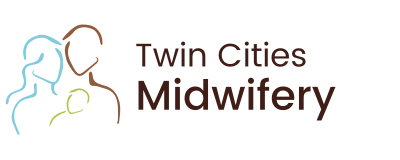05 Jun Minnesota’s Professional Midwifery Organization further Supports Waterbirth!
I recently shared a summary of the local and national waterbirth debate here.
I’m proud to say that our state professional midwifery organization just issued a statement in support of waterbirth attended by a trained professional. You can find it on the Minnesota Council of Certified Professional Midwives’s (MCCPM) website. I’ve also copied it below for your convenience.
Happy birthing sweet families!
MCCPM Supports Water Birth with a Trained Provider
The Minnesota Council of Certified Professional Midwives (MCCPM) is committed to supporting women and their families’ choices for birth. It is our mission to set a standard of excellence-of-care provided by midwives, emphasizing the time tested principles, methods, and values of traditional midwifery, while implementing evidenced-based best practices.
The American Academy of Obstetricians and Gynecologists (ACOG) and the American Academy of Pediatrics (AAP) recently issued a Committee Opinion that discourages allowing women to give birth in water. The statement cites a lack of consistent evidence of benefits for mothers or babies, and anecdotal case reports of newborn complications potentially related to being born underwater. Concerns include newborn infection, the umbilical cord accidentally breaking, and the baby inhaling water into the lungs.
In response to the ACOG/AAP Committee Opinion, The American Association of Birth Centers (AABC) compiled data regarding the utilization and outcomes of water birth among their members reporting from 2007-2010. In over 15,000 births, there were almost 4000 babies born in the water. “These data demonstrate that water birth, with careful selection criteria and experienced providers, does not negatively affect mothers or newborns.” Within the sample, there were no reports of newborns with infection, broken umbilical cords, or inhaling water, the main issues of concern in the ACOG statement. Other maternal and newborn outcome measures were similar between water and non-water births.
As experts in physiological birth, Midwives are the most experienced type of provider in facilitating water births. The American College of Nurse-Midwives’ Position on Hydrotherapy during Labor and Birth affirms that “high quality research demonstrates the use of hydrotherapy for pain relief during labor does not increase risk for healthy women or newborns when evidence-based, clinical guidelines are followed.” Such guidelines include careful screening for risk factors, detailed informed consent, appropriate monitoring of maternal and fetal wellbeing, and protocols for infection control and water temperature regulation. The ACNM statement closes by stating: “In summary, labor and birth in water can be safely offered to women with uncomplicated pregnancies and should be made available by qualified maternity care providers. Labor and birth in water may be particularly useful for women who prefer physiological childbirth and wish to avoid use of pharmacological pain relief methods.”
The Royal College of Midwives also responded to the ACOG/AAP Committee Opinion. They state “there is no reliable available evidence to indicate that waterbirth presents an increased risk factor compared with land birth for women who experience a straightforward pregnancy. There is therefore no reason to deny them the choice of using a birthing pool during the first or second stage of their labour in their planned place of birth. Maternal choice in childbirth is a human right.”
Midwives practicing in birth centers and home births are trained, pro-active water birth providers, so data generated by midwifery care provides the most accurate view of the safety of water birth. MCCPM supports the equitable data collection and analysis of the safety of out of hospital birth practices, including water birth. We are pleased to recognize that the MN Department of Health has recently improved the vital statistics gathered on birth certificates by providing a space to report water births, creating a pool of valuable data for future use. MCCPM also requires all members to contribute to the national data collection project of the Midwives Alliance of North America (MANA). We look forward to the ensuing analysis and publication of expert research from this and related organizations such as the AABC. While improvements in the evidence regarding water birth are in progress, MCCPM stands by the current understanding that many women desire to labor and give birth in water, and doing so does not pose unnecessary risk for healthy mothers or their babies under the guidance of a trained, experienced provider such as a Midwife.





Sorry, the comment form is closed at this time.